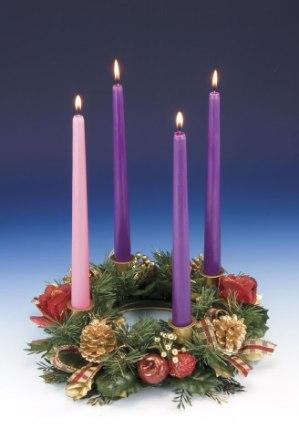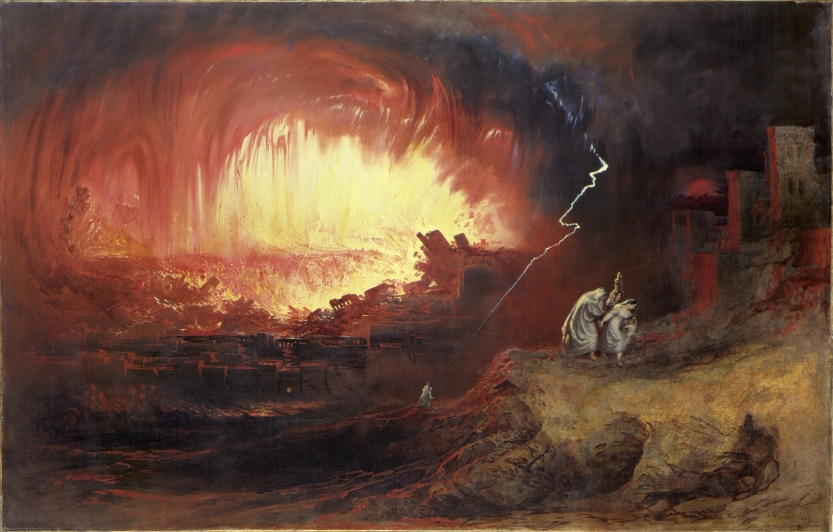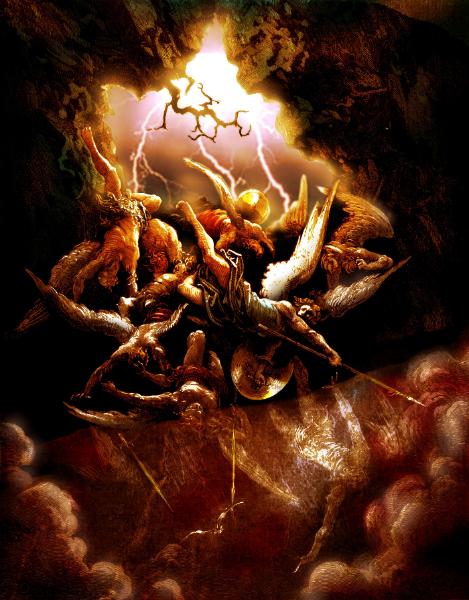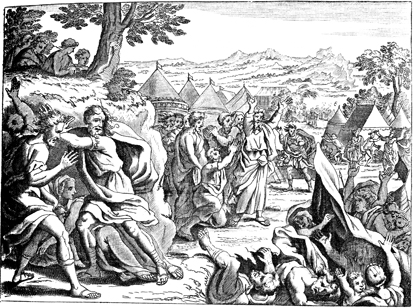8 In the very same way, these dreamers pollute their own bodies, reject authority and slander celestial beings. 9 But even the archangel Michael, when he was disputing with the devil about the body of Moses, did not dare to bring a slanderous accusation against him, but said, “The Lord rebuke you!” 10 Yet these men speak abusively against whatever they do not understand; and what things they do understand by instinct, like unreasoning animals—these are the very things that destroy them.
11 Woe to them! They have taken the way of Cain; they have rushed for profit into Balaam’s error; they have been destroyed in Korah’s rebellion.
12 These men are blemishes at your love feasts, eating with you without the slightest qualm—shepherds who feed only themselves. They are clouds without rain, blown along by the wind; autumn trees, without fruit and uprooted—twice dead. 13 They are wild waves of the sea, foaming up their shame; wandering stars, for whom blackest darkness has been reserved forever.
14 Enoch, the seventh from Adam, prophesied about these men: “See, the Lord is coming with thousands upon thousands of his holy ones 15 to judge everyone, and to convict all the ungodly of all the ungodly acts they have done in the ungodly way, and of all the harsh words ungodly sinners have spoken against him.” 16 These men are grumblers and faultfinders; they follow their own evil desires; they boast about themselves and flatter others for their own advantage.
As you read the Scripture verse at the beginning of this blog post, you can easily come to the conclusion that the Apostle Jude pulls no punches. He calls it like it is.
Today, I continue this series of blog posts doing my best to unpack this short Book of Jude.
Word has reached Jude that the churches in Asia Minor—what today we call Turkey—have fallen victim to a common problem. Evil people have come into the church and, over time, ruptured the core of the church. They have taken steps to defame the long-term formal and informal leaders. They have told lies about the more spiritually sensitive believers. They have slowly, but surely, taken over the leadership of the church.
Then, they have brought in other outsiders and elevated them to significant positions of authority in the church. Thus, having seized the reins of control, they have systematically destroyed the effectiveness of the church as a witness for the Gospel and an earthly expression of the Kingdom of God.
The church stands corrupted—its core has become ruptured. In this sad state of affairs countless lives have been adversely affected.
Contemporaneous liturature of the time talks about the effect these actions had on the youngest members of the church—the children and youth. Many young people who had walked the Christ-road have now fallen away. They have seen their godly leaders replaced with ungodly ones. They have seen those who taught them the whole counsel of God replaced by ineffective strangers. The sense of close knit family that they once had has vanished, as the corruption within the church has spread to completion.
Into this utter morass of despair comes a strong letter from the half-brother of Jesus, the Apostle Jude. A son of Mary and Joseph, Jude has come to an understanding of the power of the risen Christ somewhat later in his life than you might have expected. It was hard for Jude, his brother James, and his other brothers—Joseph and Simon—to understand that their older brother was not only the son of their mother Mary, He was the Son of the Living God.
But, having come to this reality, down through the years that follow, Jude has taken a significant leadership role. While his brother James became the principal leader of the church at Jerusalem, Jude has become a counselor to the leadership, has traveled widely visiting the fledgling churches, and has become a significant voice in encouraging the spiritual formation of the new believers.
With such a significant role, you may wonder why we only have this short letter to remind us of the role Jude played at the inception of the church. Could it be that he was simply too busy doing the work of the Kingdom to write many letters?
The very paucity of written words makes this short Book of Jude all the more powerful. He certainly doesn’t mince words. He has clearly and methodically defined the nature of those who have wormed their way into the church and, empowered by Satan, have set about rupturing the core and destroying the effectiveness of the church.
How clever these false leaders were. They did not cause the church to cease to exist. Rather, they corrupted the church, leaving it in place, but blunting its ability to do the work God had intended it to do for His own sake.
Do the words of Jude apply to us today? To discover whether or not they do, you must ask yourself: “How effective is my church in serving God? If I take a census of all the families in my church, do all the young people love Jesus and do they have an active part in the ministry of the church?”
You see, when the young people in a church begin to fall away—shy away from church attendance, exhibit no interest in learning about Jesus, give no example of faith leading them through their daily lives—this offers one of the major signs that the core of the church has become ruptured.
When a church loves Jesus and is fully committed to obediently serving Him, the young people in that church capture the vision of the Kingdom of God alive and well here on earth. They become excited and burst with enthusiasm. Not enthusiasm for a program, nor for a personality leading a program, but enthusiasm for the things of the Lord that such a program or personality presents to them. Thus, the spiritual life of its young people provides a significant way of measuring the health of a church.
In my next blog post, I will endeavor to continue unpacking the words of the Apostle Jude. In the meantime, examine your own life and the life of your church. Has the core of your church become ruptured? If so, what do you intend to do about it? If you don’t know what to do, the Apostle Jude will have some intruction for you.
Will you pray with me?
Thank You, God, for loving us. Thank You for sending Jesus to be our Savior. Thank You for sending us Your Holy Spirit to dwell within us.
As we continue to examine this powerful epistle, we also continue to feel gratitude for the message You sent to the church through the pen of the Apostle Jude. We want to explore these words of warning and examine our own churches to see whether Jude’s warning applies to our situations today.
We pray for the young people in our churches. We ask You to draw them irresistably into Your mercy and grace. Plant the seed of Christ deep within their hearts. Well up within them an enthusiasm for the life-transforming power of the risen Christ. Give them joy in knowing they belong to You. Given them unbridled enthusiasm for the life of faith. Guard them against those who would woo them away from You.
Thank You, Precious Father, that we can count on You to guard us and guide us. And, thank You for hearing our prayer in and through the precious Name of Your Son, our Savior, the Lord Jesus Christ. Amen.

Copyright © 2012 by Dean K. Wilson. All Rights Reserved.




 31 As soon as he finished saying all this, the ground under them split apart 32 and the earth opened its mouth and swallowed them, with their households and all Korah’s men and all their possessions. 33 They went down alive into the grave, with everything they owned; the earth closed over them, and they perished and were gone from the community. 34 At their cries, all the Israelites around them fled, shouting, “The earth is going to swallow us too!”
31 As soon as he finished saying all this, the ground under them split apart 32 and the earth opened its mouth and swallowed them, with their households and all Korah’s men and all their possessions. 33 They went down alive into the grave, with everything they owned; the earth closed over them, and they perished and were gone from the community. 34 At their cries, all the Israelites around them fled, shouting, “The earth is going to swallow us too!”